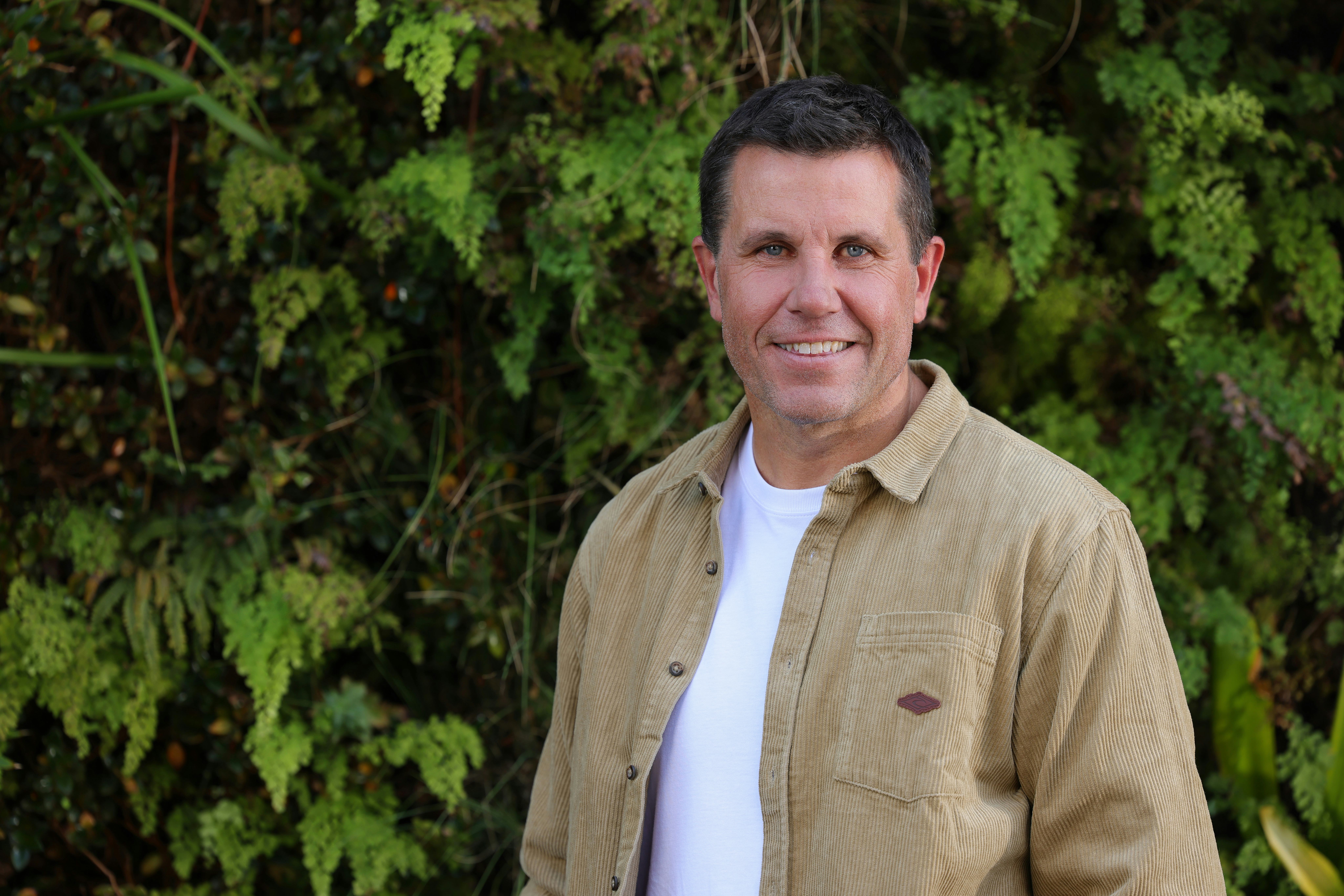Return to News
Rip Curl’s commitment to responsible materials
September 12, 2024
4 min read
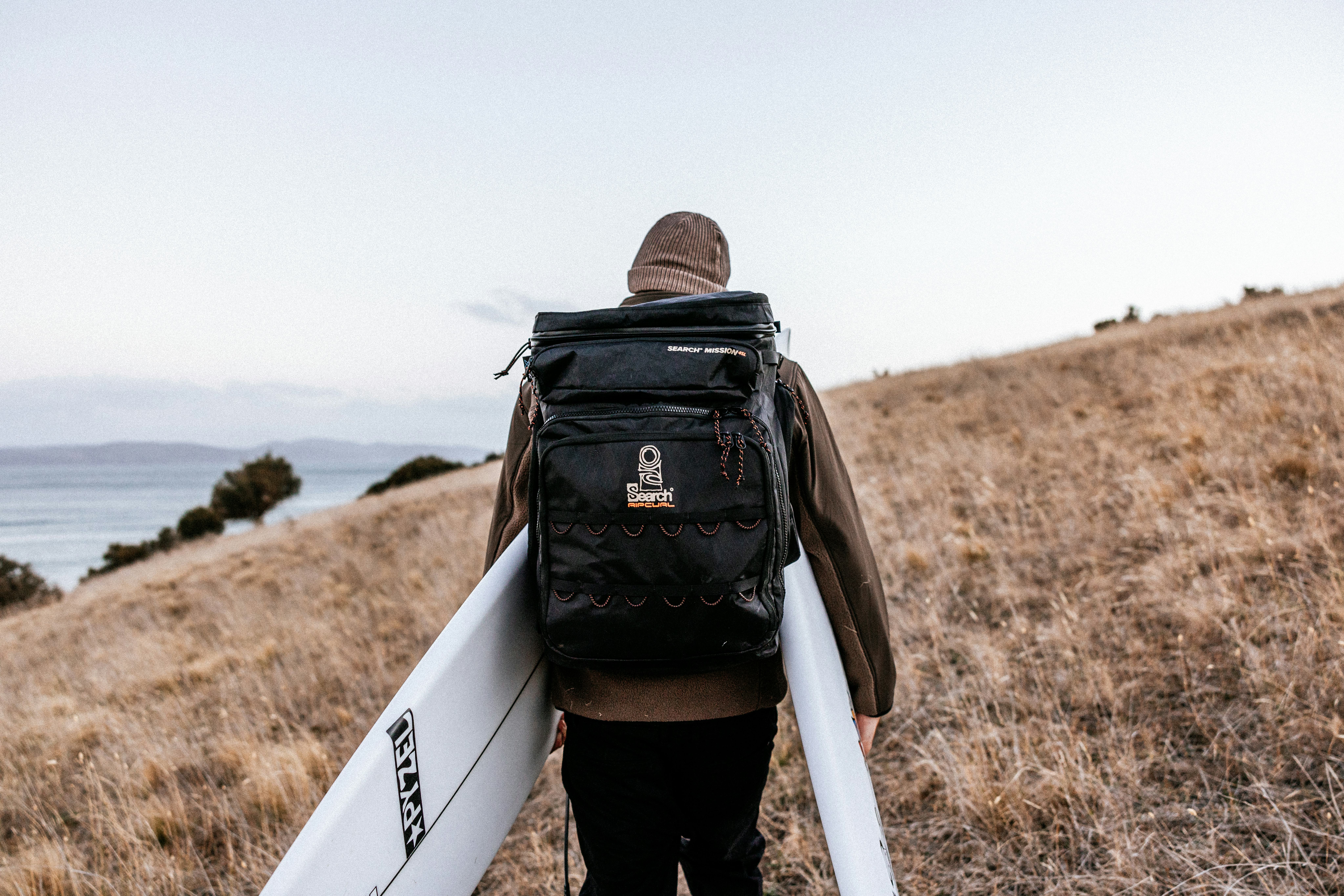
At KMD Brands, we are dedicated to our own-brand products being responsibly sourced. To us, ‘responsibly sourced’ means that our products are made, to a significant degree, with environmentally preferred, low climate impact materials. This year Rip Curl continued to make progress towards this goal.
Rip Curl is working closely with our supply chain partners to integrate preferred fibre materials into our apparel and accessories. Preferred fibre materials are those considered more sustainable due to their lower environmental impact compared to conventional materials. These fibres are chosen based on factors such as reduced carbon emissions, lower water usage, better resource efficiency, and improved biodiversity.
Rip Curl’s overarching goal is to have all our apparel and accessories contain preferred materials by 2030. In FY24, 66% of our apparel and accessories contained preferred fibres, a notable increase from 54% in FY23 and 30% in FY22.
“Rip Curl is on a journey to reduce our impact. We are making good progress, but as we move closer to our 2030 goal, it will become more challenging,” says Milan Thompson, Head of Product Innovation & Sustainability, Rip Curl.
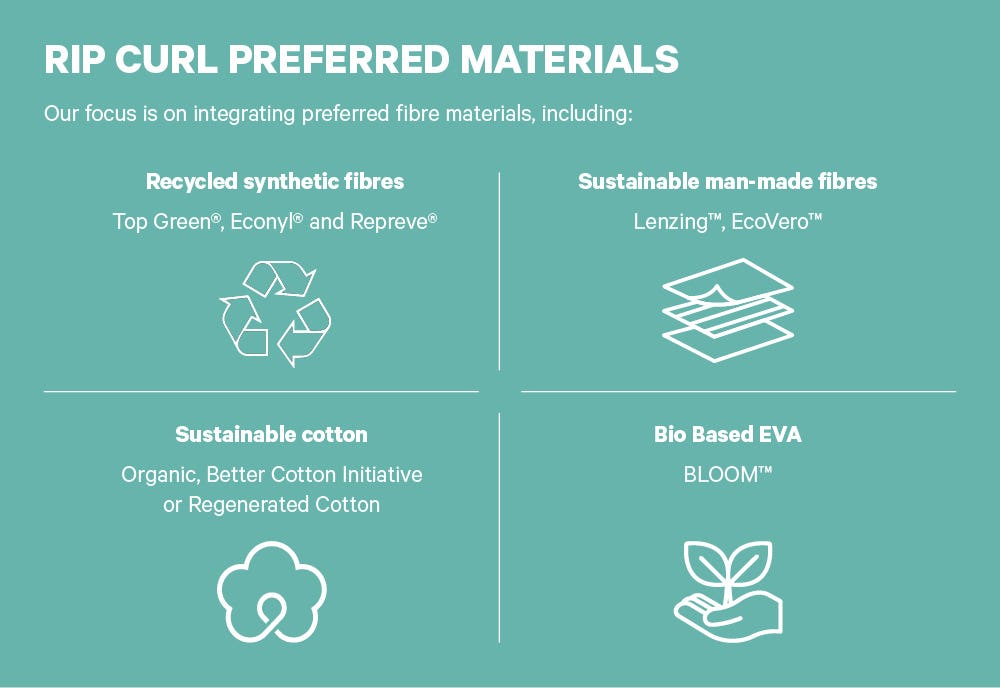
Responsible cotton
Rip Curl’s goal is to achieve 100% responsibly sourced cotton by 2026. To do this, we are a member of the Better Cotton Initiative and source a mix of organic, recycled or Better Cotton from our suppliers. In FY24, 72% of our cotton was sourced responsibly, up from 58% in FY23.
In our core categories, like t-shirts and boardshorts, we are making confident strides forward. Notably, most of our t-shirts and boardshorts now contain preferred materials.
“Rip Curl has relationships with our suppliers that stretch back decades. It is the Rip Curl way to work collaboratively with our partners, to further increase our standards and achieve our goals. We’ve come along way in a short amount of time, working in partnership with our Group and the Kathmandu team, ” says Alban Piot, Rip Curl’s Group Product Development Manager.
Plant-based wetsuit foam
Our journey with preferred materials is ever evolving as we constantly refine new plant-based foam formulations and search for alternative solutions as part of our move away from materials derived from fossil fuels.
With this in mind, we have committed to transitioning to responsibly sourced plant-based neoprene alternatives, with a goal that 75% of our wetsuit range use these materials by 2030.
In FY24, 25% of our wetsuit range ordered contained responsibly sourced materials, up from 16% in FY23.
“We are optimising our patterns and products to minimise waste and increase yield efficiency. By reducing our post-production waste, we can continue to invest in higher-quality materials and partner with suppliers who are leading the way in innovation in both performance and preferred materials,” Milan says.
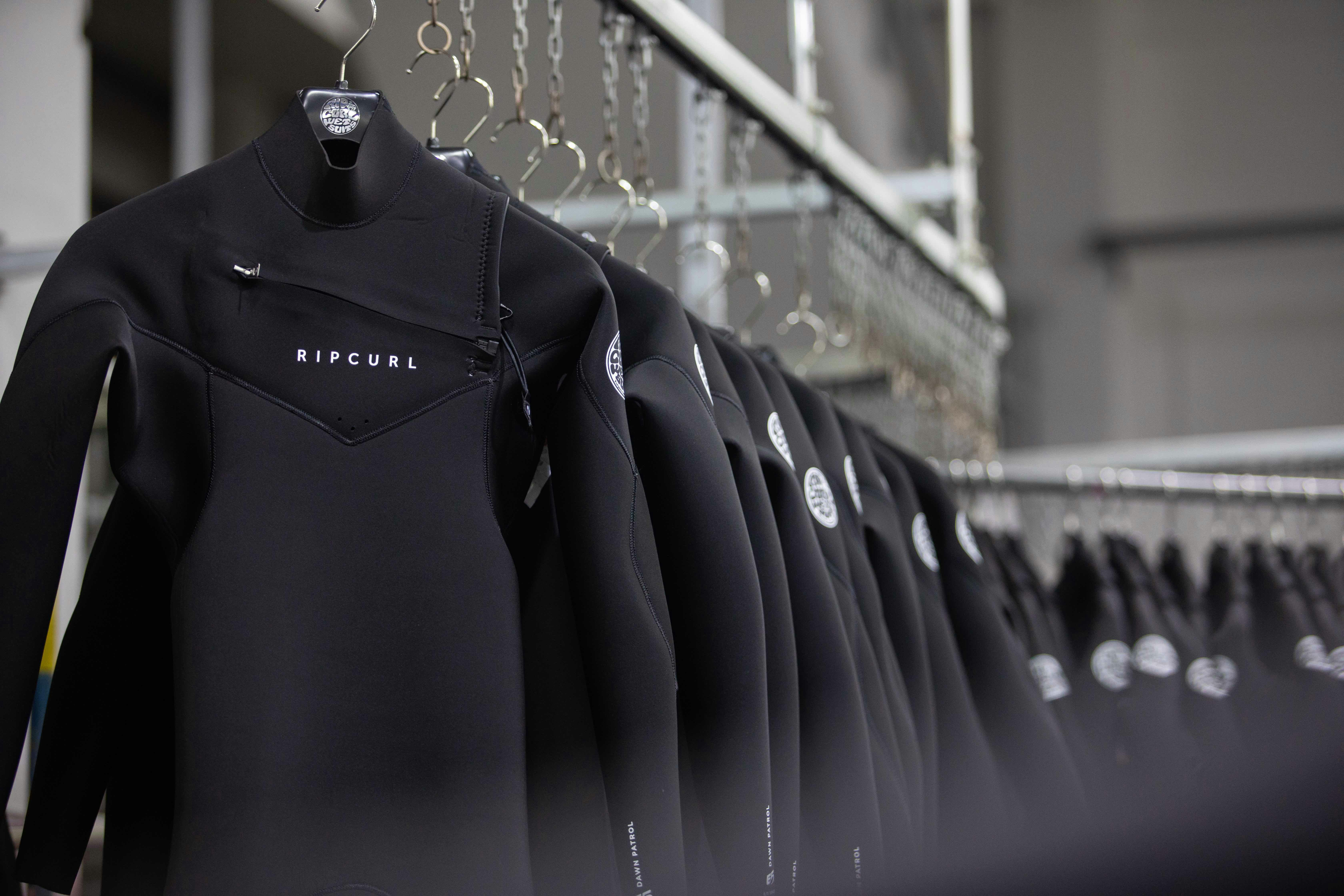
Reducing our impact in manufacturing
At Rip Curl, our love of water is why we are in business, and preserving this precious resource is a key part of our commitment to sustainability. We continuously innovate to reduce our impact and look for ways to incorporate more sustainable practices across our production processes, including:
- Water-based laminations: This helps us to eliminate volatile organic compounds (VOCs) in the jersey lamination process to create a healthier environment for our workers and reduce harmful emissions.
- Advanced water-saving dyeing technology: Some of our suppliers use cutting-edge dyeing machines that save a greater amount of water, compared to traditional methods. Their wastewater treatment systems allowsa significant proportion of the water used in dyeing to be recycled back into the process.
- Digital printing: By using digital printing for all multi-colour prints and yardages, we help to reduce production waste and energy consumption and contribute to minimising the water used in conventional printing processes.
- Solution dying: This helps to reduce water consumption in the processing with the pigment incorporated into the yarn to produce a more colour fast and UV resistant finish.
Rip Curl is proud to partner with BLOOM™, an innovative company that uses algae to create environmentally preferred materials such as foam and rubber. BLOOM™ reports that their production process captures carbon, reduces emissions, restores ecosystems and returns clean water to the environment.
In FY24, we increased our use of BLOOM™ materials substantially on the previous year, expanding our partnership with each season. Through our work with BLOOM™, we have helped to clean and return 50+ million litres of water to natural ecosystems.
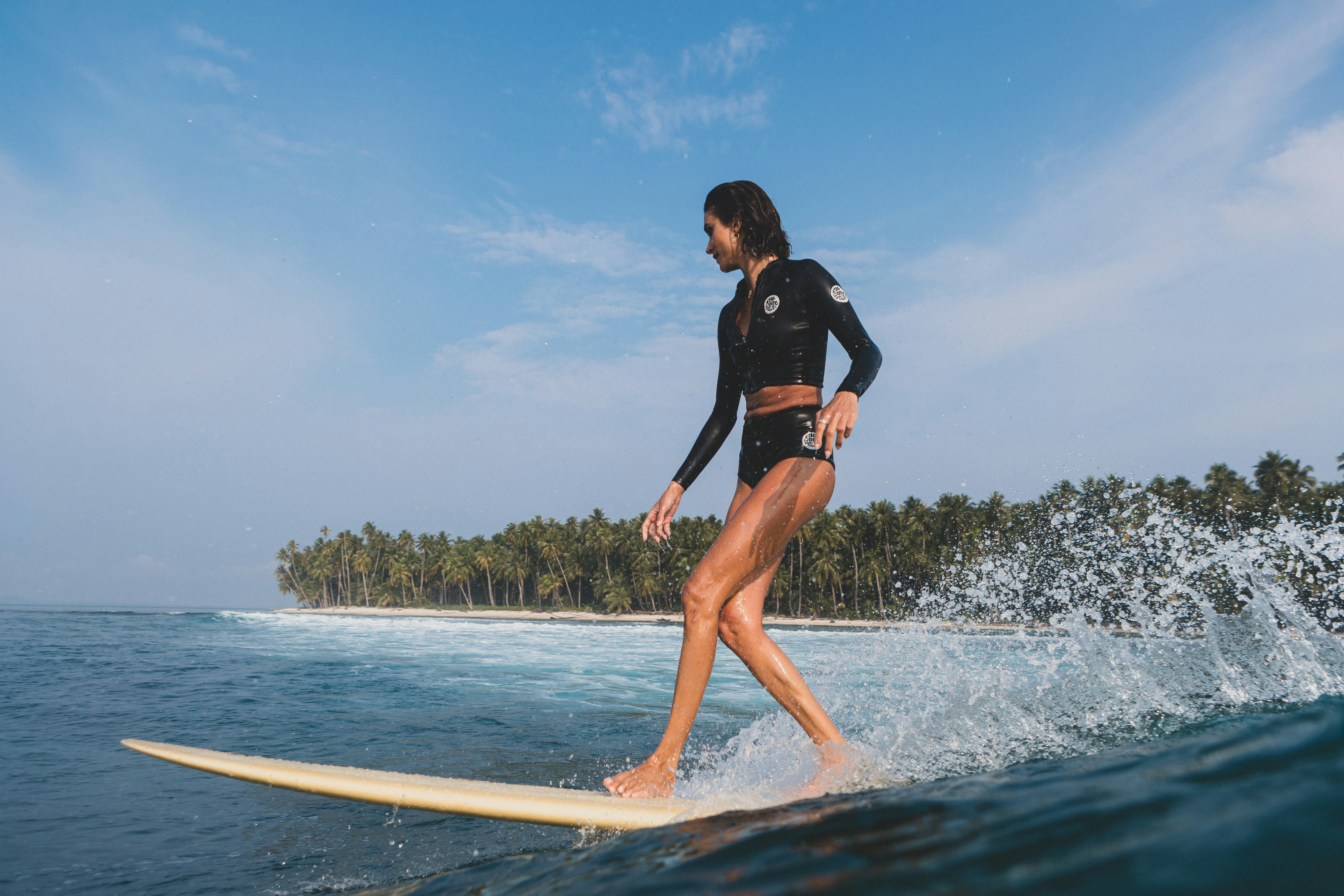
Bold moves towards a sustainable future
Rip Curl is also embracing innovative partnerships. Take the collaboration with Deakin University on a groundbreaking research project that has developed a process to extract pigments from offcut textiles and fabrics. The recycled pigments can then be used in new garments.
Rip Curl is a proud member of the Textile Exchange, a global non-profit driving transformation within the textile industry. Through this partnership, Rip Curl collaborates with other industry leaders to promote sustainable practices and responsible material sourcing across its product lines.
“As we get closer to our target, we plan to increase the integration of preferred materials in our products, explore new material innovations and continue to support our valued supply chain partners as we work together,” Milan concludes.

